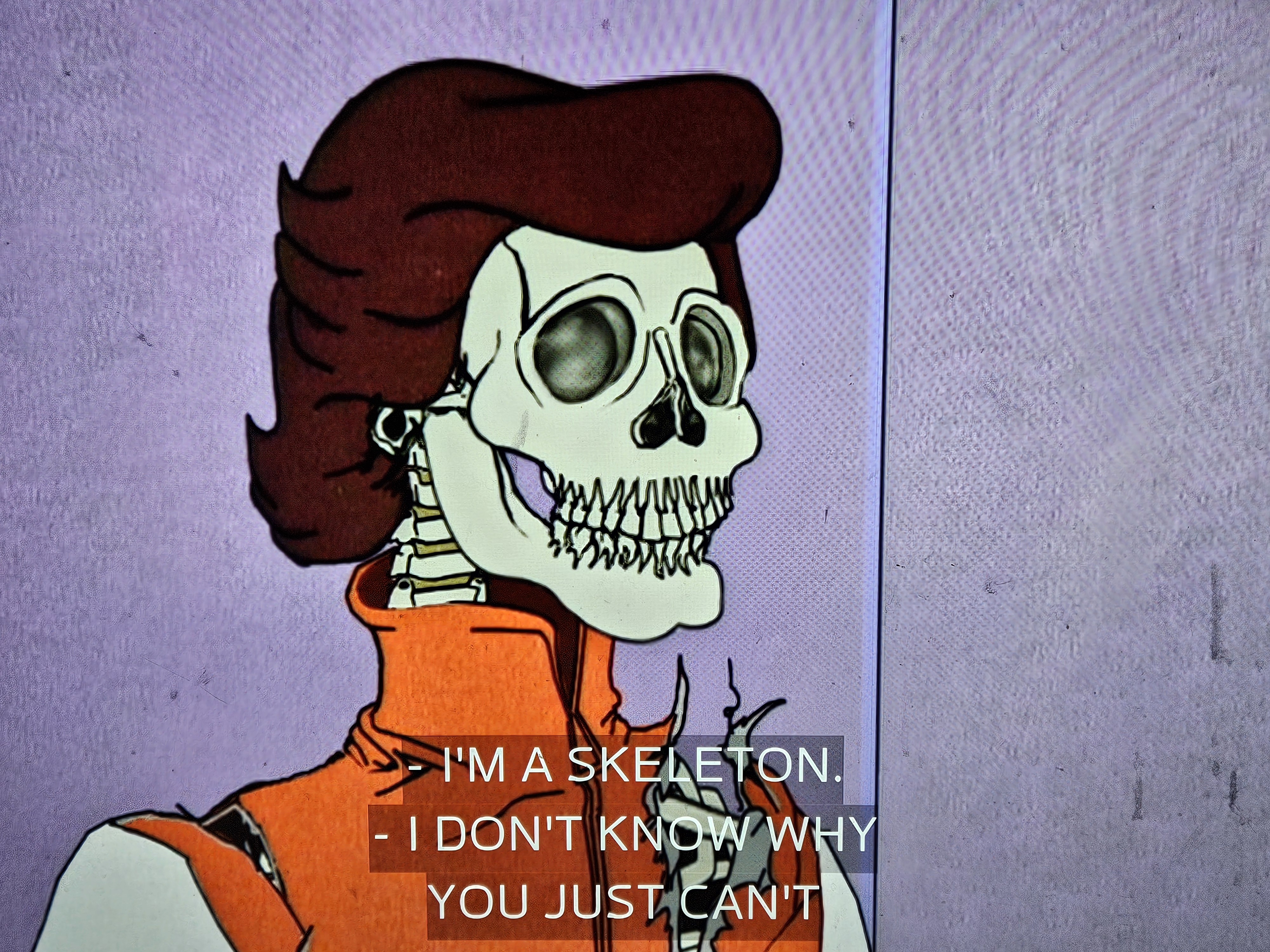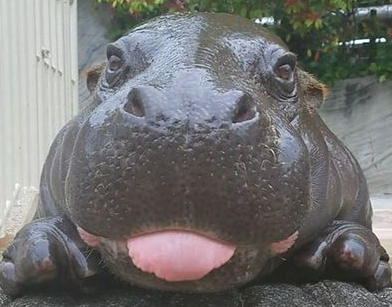When I was a grad student, my advisor used to respond to any question that started "Imagine a possible world in which..." by just saying "No, I'd rather not." :gigachad:
I don't know too much about utilitarianism, but I guess the experiment illustrates the impossibility to figure out the utility to other beings.
This issue occasionally rears it's head in vegan discussions when people try to "rank" various animals.
Right, Utilitarianism (correctly so oftentimes) gets lambasted because it can quickly go from "greater good" thinking to "How many lives can be measurably improved by
stealingredistributing this homeless person's organs?"
How does failing to accept some shitty impossible thought experiment designed to dismiss ideas of maximizing human happiness make someone a sociopath?
I don't think it's a shitty impossible thought experiment, I think it's very accurate critique on how utilitarian philosophy gets used IRL by rich "philanthropists" and the US state department in order to hide and justify unethical behaviour.
Claiming something maximizes utility != that thing actually maximizing utility.
Rich "philanthropists" and the State Department might say they are maximizing utility, but that doesn't mean it's true.
"If we measure your idea using the completely nonsensical metric of 'because I said so', your idea is nonsensical."
Why is it a nonsensical metric to measure an idea based on the consequences of the key object of the idea? I mean utility is a quantity that we can in principle measure in any way we'd like.
Utilitarianism, like most ethical philosophies, is a framework for thinking about the concept of ethics and as such two people using the same framework can come to wildly different conclusions. There’s communist and AnCap utilitarians who lay out the logic behind their beliefs in a (technically) sound fashion. I don’t really get people labeling themselves “utilitarians” to be honest.
And it should be noted I don’t really think there’s ANY ethical philosophy that doesn’t have some weird hypothetical situation someone could dream up where the logic of the framework can be used to justify bizarre and/or horrible things. It’s really a question of how likely such a situation would be to ever actually occur.
I find this shit interesting but I think as materialists we shouldn’t waste too much energy one. People don’t do bad things cuz they haven’t been presented a totally coherent moral philosophy yet, they generally do bad things for material reasons. Some tech bro billionaires being utilitarians isn’t the reason their amoral bone heads.
but we SHOULD be concerned about this, much less unrealistic thought experiment: https://medium.com/@AmericanPublicU/drowning-child-scenario-exposes-moral-hypocrisy-part-i-4b308e36b1d5 https://medium.com/@AmericanPublicU/drowning-child-scenario-exposes-moral-hypocrisy-part-ii-257e1e9e5475
as in, i am and i am having a mental breakdown
I would encourage you to log off if this philosophy debate is causing you mental anguish.
I’m just saying I don’t think convincing Elon Musk to be a deontologist is going to make him shut down his child labor lithium mines.
i can't log off from my brain though, knowing im using energy and resources and everything that could be given to those in need. every time i eat food that i don't strictly need or turn on a computer or draw or write or do anything that requires extra calories i'm failing millions of people
So if you did indeed answer “yes” to every question in the scenario, the only conclusion is that you should be offering every resource at your disposal to help children dying around the world,
Yes, that would be very moral. People who donate lots of money their money and take vows of poverty are recognized by soceity as having done a good thing. the fact that you don't donate every resource you have except for those which sustain your life and allow you to keep gathering more resources means you are not the most moral, perfect, unreproachable being on the planet, which must come as a shock to you, and people that donate more than you are more good than you.
do YOU spend everything except your bare minimum resources in selfless endeavours?
i mean i already knew that
it's not that i'm worse than someone else, but that from an opportunity cost perspective, the failure to help a child in need is the same as killing them. so i'm basically killing dozens/thousands/however much the 20$ i could have made mowing lawns when i'm drawing makes
arguably the same could be said about energy bills and time so if you spend 30 minutes on this site in your free time instead of organizing or sigma grindsetting for extra money you're killing twice as many people
it's not a good critique because everyone already uses the logic that organisms which can feel more have more moral significance. We will kill the thousands of individual organisms in an ant-hill because the pleasure we get from not having an ant-hill outweighs the anguish the ants feel.
this ignores veganism as a concept, pretty much. most vegans don't support killing insects
Vegans generally still believe in self defense, which applies to parasites. You're not morally obligated to degrade your health for another animal, you're just not supposed to kill for frivolous reasons like personal taste preferences, because that's no different than killing for sport.
Vegans avoid killing animals where it is possible and practical. They do not relocate every invertebrate in the soil when they need to build a new house. they certainly still apply different moral weights to different animals.
I do not accept the validity of hypotheticals and thought experiments. I’m fully empirical-pilled
The utility monster does exist though, the utility monster is NGOs ran by billionaires, it's the US state department, it exists in justifying more drilling permits. There are lots of examples in the real world that sort of operate on exactly this logic. It's not justified as "pleasure", but lots of evil gets justified essentially as providing more utility than it costs in suffering.
yeah that would be bad under utilitarianism as utilitiarianism does have the advantage or saying you have to think about other people
For me a core part of taking the utility monster argument in good faith is that the monster isn't just lying. It has to genuinely get more utility, not just be a regular guy with a propaganda industry. For USAID or similar to be a utility monster, the good they do by giving out food would have to outweigh the harm the cause by furthering US imperialism. If I believed that, I wouldn't be on this website. It doesn't matter how they justify it, their actual actions are a net harm, so the utilitarian thing to do is to starve them of resources.
A Utility Monster is a thought experiment by Robert Nozick, which critisizes utilitarianism. He asks us to imagine a monster which recieves more utility (more pleasure basically) from each unit of resources than any humans do. It is therefore logical, and indeed morally required, to give everything to the monster. For example, if we had a piece of cake, the Utility Monster would get 1000 times more joy out of eating it than any human, so the action that would cause the most total pleasure would always be to give the cake to the monster.
The pun based 'Utility Monster' depicted in the comic gets a great deal of pleasure from destroying pipes. Apparently that pleasure is so great it outweighs the pain it would cause us to have the pipes destroyed. Since that would still result in more net pleasure, it is morally required to destroy the pipes. Peter Singer is a contemporary utilitarian.
For example, if we had a piece of cake, the Utility Monster would get 1000 times more joy out of eating it than any human, so the action that would cause the most total pleasure would always be to give the cake to the monster.
"Oh yeah? Well what if I took your idea to an impossible extreme? Not so smart then, huh?"
have you considered that if you watch it with the frames shuffled in completely random order then it would be incomprehensible
That isn't how he already makes them?
alright but if you just included the assumption that all people are capable of the same levels of happiness and pain then the main thing about utilitarianism is that it does encourage people to think about the welfare of others
medical care during an emergency is exactly where utilitarianism thrives the most and the focus is on maximising the number of lives saved
I would argue triage follows the moral logic of utilitarianism
Most of them are either completely useless or actively harmful.
Like the one about the AI that will punish anyone who didn't actively work towards making it. At best it's useless because it will never exist, at worst it's actively harmful because the existence of the thought experiment itself will cause people to make it real.
But this one isn't, this is a valid critique at a very obvious and very real issue with an ethical framework that is at the core of the socio-political structure we currently live under.
basically, morality is a lie, eat hot chip, kill the rich, do nice things because the community of humanity is a living body that thrives on cooperation
we must not see our devotion to others as do-gooding merely for others; rather we must conceive our lives and interests as bound up with those of others.
What if I got more utility out of monster-killing than the Utility Monster got out of monstering?
Logically, I would have to put the monster to the sword and have everyone in town toss me coin and drink
But this does exist and frequently exists throughout history.
Time and time again, it's argued that Bezos (or whoever) will get more utility out of the surplus value than the workers, therefore it is moral and just that Bezos is ludicrously rich.
I respect utilitarianism because 1) I'm too dumb to have any other ethic system and 2) it's pro-guillotining billionaires and redistributing their capital.








